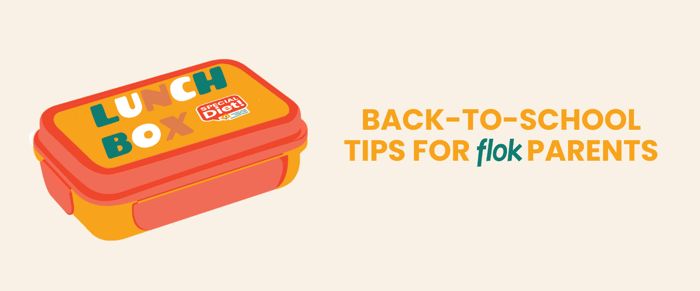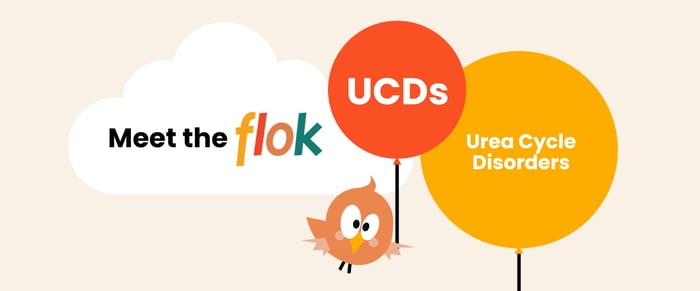As the school year approaches, excitement builds for new classes and friendships. For parents of a child with an inherited metabolic condition, this excitement can be tinged with worry. How will I manage my child’s protein intake? Will they get the support they need in school? Will my child feel included or isolated? How can I help my older child feel confident and gain independence in managing their condition? We’ve assembled some tips to help you tackle the upcoming year! This article includes information from previous resources created by PKU News—see the sidebar for these links.
Many children with inherited metabolic conditions benefit from accommodations in school. How much support your child needs in the classroom depends on the condition and several other factors. We’ll cover ways to approach:
Nutritional needs, including low-protein meals and medical formula
Academic support
Medications and supplements
Talk to Your Child
FAST FACTS: SCHOOL SUPPORT SERVICES & OTHER RESOURCES |
IEP (Individualized Education Plan): |
| IHP (Individualized Healthcare Plan): Healthcare management of chronic condition, e.g., medical diet and medication schedule |
| 504 Plan: Functional and learning accommodations not covered under an IEP for special education, e.g., fatigue with physical activity |
| Shop flok Gear: shop.flok.org |
| Other Resources: Back to School with PKU (2022) Lettuce Eat... (2020) NPKUA School-Age Resources |
| Videos |
Understand what’s most important to your child or what worries them. It might be eating a lunch that looks different than others’ or keeping track of all their assignments. Including your children in the conversation helps you create a plan that puts their goals at the forefront. Collaboration in the process will enhance your child’s understanding of the condition, build confidence, and empower him or her at school.
Know Your Rights
There are three federal laws in place to protect children with qualifying conditions to receive accommodations in school: The Individuals with Disabilities Act (IDEA), The Americans with Disabilities Act (ADA), and The Rehabilitation Act of 1973, Section 504. Additionally, under the USDA’s nondiscrimination regulation (7 CFR 15b), schools that use federal dollars are required to make reasonable accommodations for your child with their own funds.
Whichever combination of nutritional, medical, or academic support your child needs, you must submit a formal request to the school for accommodation. While there is no single way to approach this, we’ll outline how to start these conversations.
Nutritional Needs
Whether you choose to pack lunch or use the school’s nutrition program, start by gathering clinical documentation from your provider with an explanation of your child’s metabolic condition and nutritional needs. Once you have this information, request a meeting with a school staff member like a teacher, social worker, dietitian, nurse, or principal.
School Breakfast and Lunch: Come prepared for the meeting and bring a support person; you can also invite your dietitian. Complete the Medical Statement for Children with Specialty Dietary Needs form with a signature from your child’s doctor. Consider in advance what requests you have for the kitchen staff and then find out what specialty products they already offer. Requests might include substitutions like gluten-free bread and pasta, dairy-free cheese, coconut milk, or double portions of fruit and vegetables at mealtime. You can also request the cafeteria order low-protein items through the Ajinomoto Cambrooke School Lunch Program and prepare a specialized monthly menu for your child. You may also choose to review the school’s hot breakfast and lunch schedule every month to estimate protein counts and decide which meals your child can have, and where substitutions are needed. This should be an open and collaborative process between you, your child, and the school staff.
 Meals from Home: If you choose to send meals from home, your child may still get beverages and snacks through the cafeteria. You should still meet with the school nurse to complete formal paperwork, which may be the medical form above or an Individualized Healthcare Plan. Make sure both your child and the cafeteria staff understand what can be served. Next, talk with your child about what will help him or her feel comfortable—we know kids compare their food! Here are a few ways to add excitement to mealtime:
Meals from Home: If you choose to send meals from home, your child may still get beverages and snacks through the cafeteria. You should still meet with the school nurse to complete formal paperwork, which may be the medical form above or an Individualized Healthcare Plan. Make sure both your child and the cafeteria staff understand what can be served. Next, talk with your child about what will help him or her feel comfortable—we know kids compare their food! Here are a few ways to add excitement to mealtime:
Use sandwich cutters to create fun shapes
Buy a multi-compartment lunchbox that allows variety in the contents
Send dippable foods with condiment cups
Replicate popular meals like Lunchables using low-protein ingredients
If you’re already using the flok app, use the grocery store locator to find ingredients and prepared foods
Get recipe inspiration on the Cook for Love website
Use Instagram—follow accounts like @pku_lunch_mom for meal ideas
Counting Protein & Other Amino Acids: There are several ways to track your child’s protein and amino acid intake when they are at school, without being there to weigh or eyeball the food yourself.
Use HowMuchPhe.org or the flok app: if your child is old enough and can use a smart phone at lunchtime, they can add items to the food log using a Favorites List, Quick Tally, or upload a photo of the finished tray (this last feature is in the flok app)
Lunchbox leftovers: ask your child to leave the uneaten contents of lunch in the lunchbox for you to review at the end of the day. Decorate the lunchbox with a flok sticker as a reminder not to throw away uneaten food
Try a food log: Ask your child or a teacher to fill out a paper diet log; there are lots of health and dietary journal options on Amazon
- Medical Formula: Formula is a critical part of your child’s nutritional plan and optimizes energy, mood, and performance in school. How often your child drinks or takes formula supplements throughout the day will vary based on the condition, your dietitian’s recommendations, and what your child is comfortable with. To ensure the plan is followed, formula needs will likely be included in an Individualized Healthcare Plan, IEP, or 504, discussed more below. Options include:
In class—avoids missed lessons and adds fun using a favorite bottle or strawed cup
In the nurse’s office—provides privacy from classmates and oversight of formula consumption
From a refrigerator/cooler in the teacher’s lounge or classroom—ideal for prepackaged formula products
Parties & Treats: Ask your child’s teacher to provide advance notice of special occasions whenever possible, but also create a back-up plan. Stock the classroom with shelf-stable low-protein foods (e.g., granola bars, cookies, pretzels, sweets), and consider asking the cafeteria to store an individually packaged frozen low-protein cupcake for birthdays. Encourage teachers to contact you with spur-of-the-moment questions.
Academic Support
If your child has attention, memory, or learning deficits, they may benefit from education services to adjust instruction, assignments, test-taking, or other supports like occupational or speech therapy. Have open, ongoing conversations about your child’s school experience and normalize the need for extra help.
We’re lucky to have an expert within our flok community: Dr. Eugene Lubliner, Psy.D., BCBA, LBA—a New York State Licensed Psychologist, Board Certified Behavior Analyst, and certified School Psychologist. He holds a doctoral degree in psychology from Hofstra University. Dr. Lubliner also has a child with PKU. His presentation slides from a recent National PKU Alliance conference are an excellent resource as you approach educational support for your child. To start the process, you should:
Document the areas where your child needs support (e.g., reading, concentrating)
Ask your clinic for records to support your concerns, including your child’s diagnosis
Write a letter or email to school requesting accommodations including the above information; there are sample templates online to reference
Request a meeting with the school nurse, social worker, principal, or special education coordinator (if the school has one)
The school will have a process for deciding which educational plan suits your child. Many children with inherited metabolic conditions qualify under the "other health impairment" designation of the Individuals with Disabilities Education Act. You can work with the school to develop an Individualized Education Plan (IEP) that sets academic goals and includes detailed instructions on modifications to achieve those goals—like extra time for test-taking or alternative assignments.
Children who do not qualify for education services but still need accommodation (e.g. extra time to get to class, alternative testing environment) may qualify for services under a 504 Plan. Collaborate with your school to figure out which plan works best for your child.
Medications
If your child takes any medication, formula tablets, or supplements during the daytime, request a meeting with the school nurse. The school will need a formal record of your child’s medication plan in an Individualized Healthcare Plan. If your child has an IEP or a 504, instruction may also be included there.
As you prepare for the school year, remember you are not alone in navigating these challenges. By being proactive, collaborating with school staff, and keeping communication lines open with your child, you can create an environment where they feel supported and empowered to thrive.



